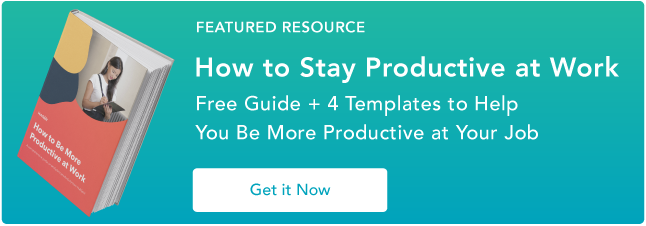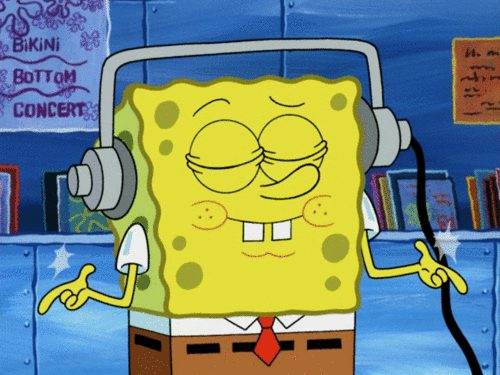Tired at Work: Your Hour-by-Hour Guide to Surviving
When you wake up:
Take a cold shower. Research shows immersing yourself in chilly water decreases tension and fatigue, boosts your mood and your memory, and even cuts down on general pain.
In a rush? It’s chill -- you can still perk up by drinking cold water and splashing some on your face.
At breakfast:
When you’re under-the-weather, you don’t always feel like eating. And that’s okay: A recent meta-study debunked the myth that breakfast is a “magical meal." In other words, if you’re not hungry, you don’t have to eat.
But if you do have an appetite, opt for peanut butter and banana toast. You’ll get a slow, sustained release of energy from the peanut butter, some brain-fueling glucose from the banana, and digestion relief from the bread.
8:00 AM:
As soon as you get in the office, you’re probably tempted to head straight to the coffee-maker and pour yourself a huge cup. However, if it’s earlier than 9:30 a.m., try to resist caffeine’s siren call. Your levels of cortisol (a natural chemical that makes you feel awake and alert) are typically spiking around 8 to 9 a.m. If you add caffeine to the mix, you’ll actually diminish cortisol’s effects.
8:05 AM:
Since you’re not going to accomplish as much as usual, be strategic about what you tackle. I normally choose a couple MITs (or “Most Important Things”): the items on my to-do list that simply must be completed by the end of the day.
Your MITs could be activity-based (“call X prospects,” “give Y demos”), goals (“pass Z leads to account executives”), or a combo.
The good thing about choosing your MITs early? You can tackle them while your energy is highest.
9:30 AM:
Coffee time! It’s now the optimal time to boost your alertness and energy with a little java.
10:30 AM:
Can you spare a couple minutes to go outside? Even if you’re standing in the parking lot (rather than the Great Outdoors), your mood and concentration will improve and your anxiety and stress will decrease.
However, if you’re on a call or in a meeting, pull up some nature pictures on your computer. Looking at digital flora for even 40 seconds makes your ability to focus shoot up.
12:30 PM:
It’s been a while since that slice of toast, so push back your chair and go find some food. Since eating away from your desk is good for productivity, you’ve got the perfect excuse to hit up the cafe or nearby lunch spot.
1:30 PM:
Great news -- your cortisol levels are sliding down, which means you can drink more coffee!
Alternatively, you can take a power nap. A half-hour nap between 1 and 3 p.m. will give you a second wind without interfering with your sleep tonight.
3:00 PM:
Have you finished your MITs? Awesome. Now, turn your attention to more creative endeavors. At this time in the afternoon, your energy is at an all-time low -- which, bizarrely, means your creativity is at an all-time high. Take advantage of this state by tackling problems without direct solutions. For instance, you could review your last five calls to see if there’s a better way to answer a common objection. Or, you might dig into the previous quarter’s numbers to see if there’s anything you can use to improve.
4:00 PM:
We’re in the home stretch, baby. Listen to an energy-boosting playlist, then crank out some low-energy tasks: Sending emails, researching tomorrow’s calls, or even looking for content to send to prospects.
5:00 PM:
It might not’ve been easy, but you got through the day. Now you can go home, pull on comfy clothes, and enjoy some well-deserved Netflix. (When it comes to comfort shows, you can’t beat Parks and Recreation, Friends, or The West Wing.)
Tips for Use All Day
Don't eat too much
For most of us, the natural tendency when we're tired or bored is to eat -- and eat some more. Exhaustion can make it harder for us to tell when it's time to stop eating, so check your portions before chowing down. And avoid sugary foods which can cause you to crash further (if that's even possible). Instead, grab foods like boiled eggs or whole grains which will leave you feeling fuller and less tired.
Stop procrastinating
Long-term stress can sap your energy. It happens when you've unsuccessfully avoided something negative -- whether it's a project you're dreading or a deadline you've already missed and just can't face. By knocking out these tasks you can decrease stress and feel more alert and positive about work.
Meditate
Did you know meditation can relieve stress and refresh the body? That means a quick 10-minute meditation (using an app like Headspace or Calm) can reset and refocus you for the day. Hey, it's worth a try.
Staying focused at work can be tough -- especially when you're tired. Above all, be kind to yourself, realize you're not going to conquer the world every day, and know you can always start fresh tomorrow.

Productivity




![How to Improve Sales Performance of Reps or Teams [Data & Expert Tips]](https://53.fs1.hubspotusercontent-na1.net/hubfs/53/improve-sales-team-performance%20(1).jpg)
![How to Avoid a Summer Slowdown in Sales [Data + Tips]](https://53.fs1.hubspotusercontent-na1.net/hubfs/53/summer-slowdown.png)
.jpg)


.png)

![What Is the Four-Day Workweek [and Can it Really Boost Sales?]](https://53.fs1.hubspotusercontent-na1.net/hubfs/53/4%20Day%20(1).jpg)

![The Most and Least Productive Days of the Week Revealed [SlideShare]](https://53.fs1.hubspotusercontent-na1.net/hubfs/53/most-productive-day-of-week.jpeg)